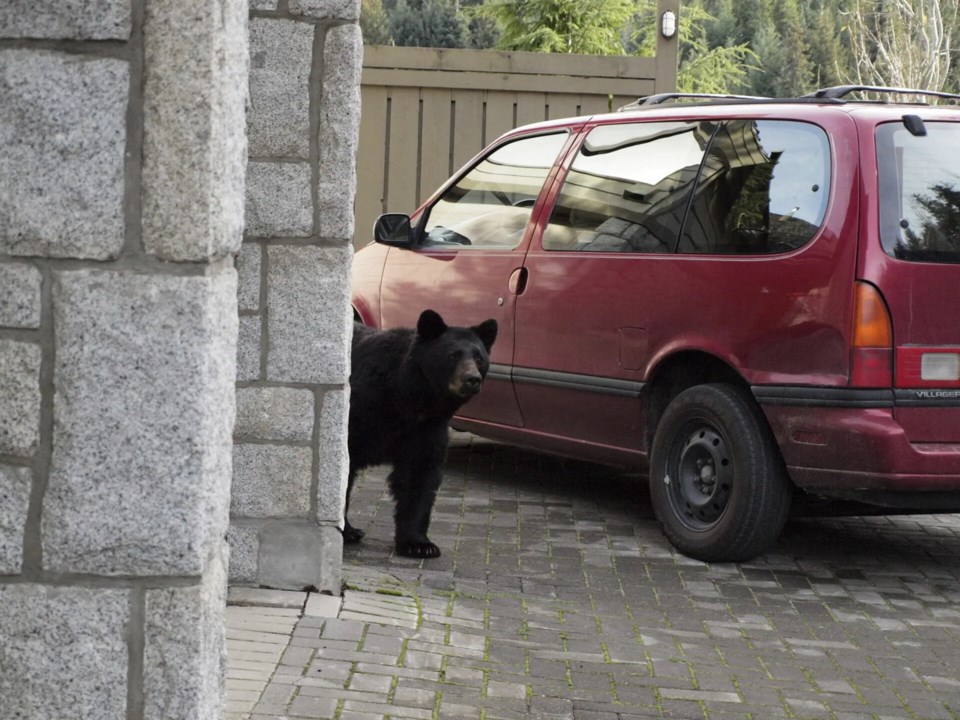Conservation officers in Whistler killed an adolescent black bear on Wednesday, Sept. 13 with "an extensive history of conflict" that officials say included approaching people for food on several occasions.
In a posted Thursday afternoon on behalf of the BC Conservation Officer Service (COS), the Resort Municipality of Whistler (RMOW) said the "sub-adult black bear" posed an elevated risk to public safety despite two relocations and repeated attempts to haze the animal throughout the last two months.
Conservation officers say the bear appeared increasingly comfortable around humans since mid-July. Officers heard reports of the bear "approaching numerous groups of people or individuals in various locations to obtain food, accessing garbage and recycling, accessing a food delivery box, damaging and entering properties, and escalating aggressive behaviour towards people," according to the notice.
"This is a very sad situation and an important reminder to residents that according to Whistler’s Solid Waste Bylaw it is the law to secure all wildlife attractants, this includes food," the RMOW explained.
Any food left unsecured outside a property—grocery and meal kit delivery boxes, for example—is classified as a wildlife attractant according to the bylaw. Small amounts of food residue or oils lingering on washed recycling and other garbage can also attract bears and other wildlife, even if animals aren't able to gain a food reward from the empty containers. (More tips about how Whistlerites can help protect black bears are available .)
The RMOW encourages locals to report any bears consistently spending time in residential areas to the COS at 1-877-952-7277. "Early reporting allows officers to use non-lethal hazing methods to shepherd bears away," the municipality stated in the notice.
Properties struggling to manage wildlife attractants, meanwhile, can be reported to Bylaw Services by phone at 604-935-8280 or email, at [email protected].
It marks Whistler's third black bear killed due to human conflict this year. Conservation officers , after it had reportedly accessed several Whistler homes—in some cases, where people were still inside—over a two-day span. At the time, the COS said officers also relocated a different black bear on July 19 after it was repeatedly seen eating Saskatoon berry shrubs in the village.
Previously, in late April, the COS and elderly, emaciated bear near the day lots after it was spotted bluff-charging people in and around the village.




